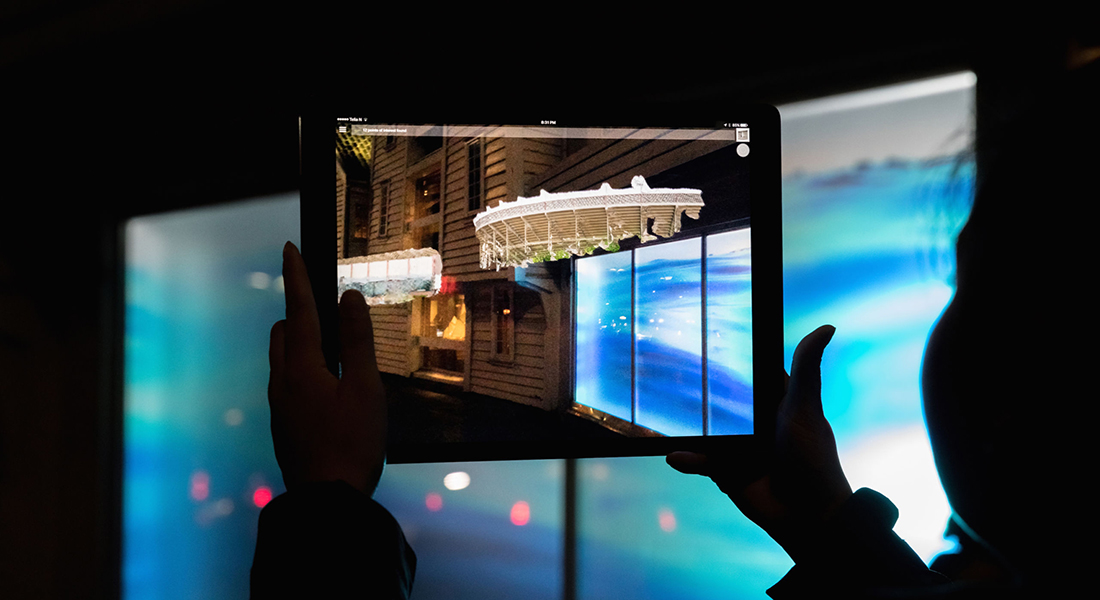Digital culture
Datafication, platformisation, and digitalization are significantly reshaping contemporary societies and cultures, giving rise to novel cultural expressions, social practices, cultural industries, and material infrastructures.

The Digital Culture Research Cluster is dedicated to advancing research that explores the interactions between cultural dynamics and socio-technical infrastructures. The interdisciplinary nature of the work happening within DC spans across cultural theory and studies (encompassing literature, performance, musicology, sound studies, and art history), anthropology, Science and Technology Studies (STS), media and communication studies, information studies as well as critical studies in data and machine learning.
Methodologically, the cluster employs a diverse range of established qualitative and quantitative research methods, including ethnography, archival techniques, and cultural and visual analysis. Additionally, it explores emerging digital and experimental methodologies such as machine learning, digital forensics, and artistic research practices.
Organizationally, the cluster supports various research activities, including informal monthly lunch meetings, internal and external seminars, research excursions, peer-feedback sessions, and networking opportunities with other relevant research communities.
Critical data, algorithm and AI studies
The research cluster examines the production, distribution and reception of data, models and machine learning technologies, with a particular sensitivity to gendered, racialized, colonial and class-based dimensions of computational regimes, among other things through the Critical Data and Machine Learning Lecture Series organized by AI REUSE and DALOSS.
Digital art & aesthetics
The cluster investigates the cultural roles, emergences, and imaginaries of digital art and artistic research practices, including new media art, music and sound art, video games, expanded reality and virtual worldmaking. Current projects investigate the aesthetic and creative implications of algorithmic behaviours and cultures, genre and the authenticity of data and digital objects.
Everyday use of technology
The research cluster examines the ways in which digital technologies are ingrained in everyday lives – as habits, as mundane practices, as addictions, as algorithmic anticipations that affect the way humans relate, sense and engage with each other (intimacies and communities) as well as their environments (homes, cities, landscapes).
Digital infrastructures
The research cluster investigates the complex interplay between digital infrastructures and forms of materiality in the digital age. A focus of the research cluster lies in the acceleration of platformised distribution and consumption, and the geopolitical potential of digital mediators as well as their relation to the materiality of infrastructures.
Digitalization and platformization of cultural production, industries and institutions
Digitalization of cultural production and institutions impact on a range of economic, political, and aesthetic aspects. Current research projects in the cluster focus on the ways in which forms of digitalization facilitate new socio-cultural practices and cultural imaginaries. Furthermore research projects in the cluster investigate how cultural industries and cultural-economic models shift due to the influence of digitalization, and how digital platforms shape and reconfigure cultural, political and socio-economic landscapes.
Projects
- Algorithms in Art: Displacements with Algorithmic Culture in Danish Art since 1990
- Data loss (DALOSS): the politics of disappearance, destruction and dispossession in digital societies
- Don’t Take It Personal: Information and Privacy in the Algorithmic Age
- Follow Me: The Influence of Danish Digital Media Creators
- HomeCTRL
- The platformisation of culture: Cultural policy, art museums and digital communities in the age of tech giants (in Danish)
- The Aesthetics of Bio-machines and the Question of Life
- Uncertain Archives
Networks
Researchers
Internal
| Name | Title | Phone | |
|---|---|---|---|
| Ag, Tanya Ravn | Assistant Professor | +4535321265 | |
| Bork-Petersen, Franziska | Associate Professor | ||
| Colbourne, Esmee Dylan | PhD Fellow | +4535324016 | |
| Jørgensen, Stina Marie Hasse | Assistant Professor - Tenure Track | +4535328219 | |
| Mackinnon, Katherine Clare | Postdoc | +4535325176 | |
| Meleschko, Sara Kepinska | PhD Fellow | ||
| Pedersen, Anders Bach | PhD Fellow | +4535337748 | |
| Raasted, Kristoffer | PhD Fellow | ||
| Schade, Frederik | Postdoc | +4535332314 | |
| Thylstrup, Nanna Bonde | Associate Professor - Promotion Programme | +4535334024 | |
| Valtýsson, Bjarki | Associate Professor - Promotion Programme | +4535328237 | |
| Veel, Kristin | Professor | ||
| Wellendorf, Kassandra Charlotte | Teaching Associate Professor | ||
| van der Meijden, Peter Alexander | Teaching Associate Professor |
